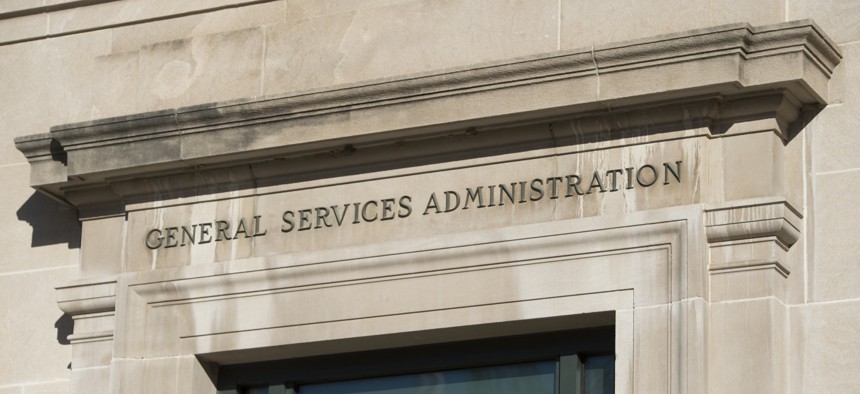
A 2022 GSA inventory could not account for 84 foreign gifts that were in the agency’s database, a recent report found. SAUL LOEB / Getty Images
GSA lacks management controls for keeping foreign gifts, IG says
An inspector general’s audit of the agency’s Foreign Gifts and Decorations Program found that GSA officials were missing gifts from its inventory while also possessing prohibited items due to insufficient management practices.
The General Services Administration’s program for managing the gifts received from foreign dignitaries did not have adequate inventory systems to keep track of the items in its possession, a new report found.
The GSA’s office of the inspector general issued the results of a four-year audit of the agency’s Foreign Gifts and Decorations Program, finding that some gifts were missing, while others sat in storage for years and others included prohibited items like bottles of whisky due to a lack of strong standards for managing the gifts received.
“During our inventory verification, we found that foreign gifts were not organized or labeled in an efficient manner,” the report said. “Inventory tags were found on the ground and not attached to any foreign gifts, and gifts were unorganized. As a result, the Foreign Gifts and Decorations program manager had difficulty locating gifts in our sample inventory.”
GSA’s Office of Administrative Services and the Federal Acquisition Service’s Office of Personal Property Management oversee the Foreign Gifts and Decorations program, with the former managing the gifts’ receipt and retention and the latter for distribution of the gifts governmentwide.
When a federal employee receives a foreign gift above the minimal allowed value of $480, they must report it to their agency within 60 days. When that agency determines the gift should no longer be in use, it turns it over to the GSA.
The OIG report found that as of April 27, 2023, GSA’s inventory included “1,265 foreign gifts, with an estimated value of $2,108,390,” with items like “jewelry, purses, bags, fur coats, portraits, paintings, rugs, statues and watches” and some more than 40 years old.
But the report found that out of a sample of 200 gifts worth $1.2 million combined, GSA was unable to locate 14 gifts valued at $13,000.
GSA officials told the OIG that no gift inventories were completed between 2018 and 2022 due to staffing shortages and the effects of the pandemic. A 2022 inventory could not account for 84 items that were in the agency’s database. GSA officials also didn’t adequately research discrepancies in the inventory database as required by guidance.
Also, despite GSA policies prohibiting accepting foreign gifts consisting of alcohol, the report found the Foreign Gifts and Decorations Program had two whiskey bottles worth $8,854 combined in its possession. That combined with the presence of foreign gifts dating back to the 1980s demonstrated inefficiencies in the agency’s inventory and disposal processes.
The OIG also cautioned the risk of theft or loss of the gifts due to security deficiencies at the GSA facility where they are housed. The report also said that gifts lawfully sold by GSA to the public were missing documentation supporting their value and approval from the Secretary of State for disbursement.
The OIG offered six recommendations to GSA, including that it update operating procedures for the Foreign Gifts and Decorations Program, dispose of prohibiting gifts, update its inventory and conduct annual assessments, conduct a security risk assessment, better ensure policy compliance and that all property sold be reviewed and approved by the Secretary of State.
GSA largely agreed with the recommendations, but noted that the bottles of whisky were shipped directly to it by the reporting agency “without GSA’s prior knowledge or approval” and have since been destroyed.
GSA officials also pointed out that the State Department prohibits the sale of any gifts received during the current presidential administration and that recipient agencies may retain them for “years or decades” before reporting them to GSA, meaning that the gifts may be added to the inventories much later than they were provided. GSA officials said they would update policies for handling older gifts.







